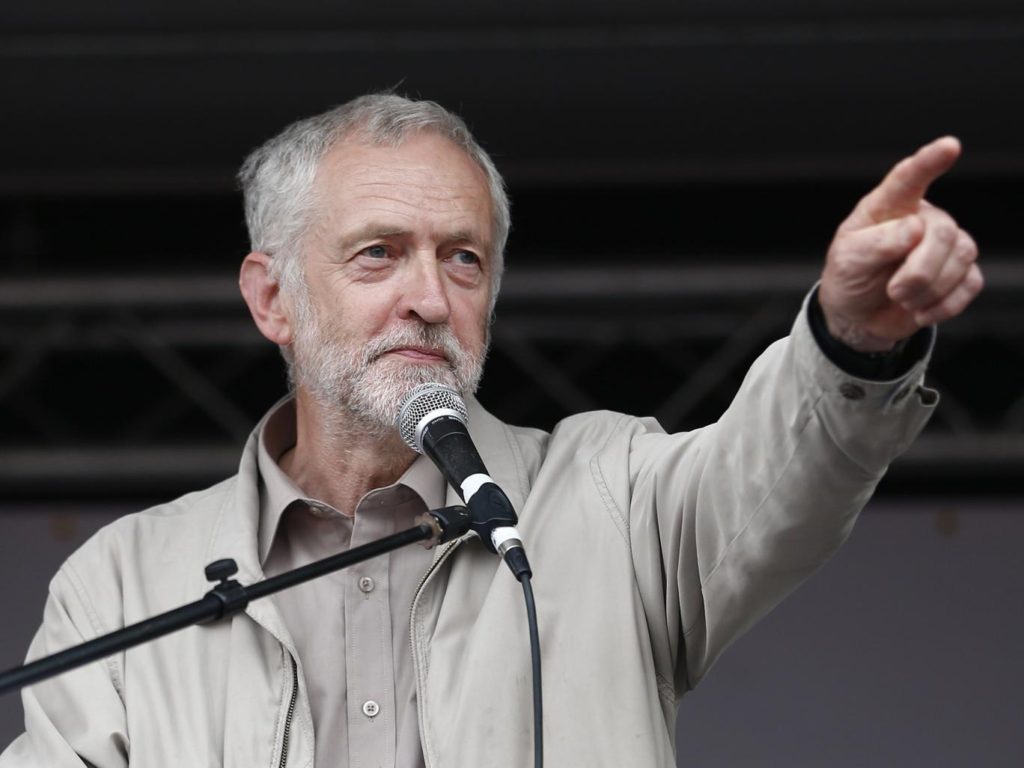Naomi Wimborne-Idrissi
Most Labour Party members, even including many MPs previously hostile to Jeremy Corbyn, have responded to the party’s revival during the general election campaign by setting aside divisive talk and looking forward to a more unified future. Not all however.
For Jeremy Newmark, chair of the pro-Israel Jewish Labour Movement (JLM), writing in the Jewish News, “the immediate agenda” is to re-investigate and expel Ken Livingstone, pursue outstanding cases such as Jackie Walker’s, “revisit” those Chakrabarti and Royall report recommendations “that fell short of expectations,” get the NEC to table the JLM’s rule change proposals at Labour Party conference and, “redouble our efforts to massively expand our training and education program at all levels across the party.”
The JLM’s rule change proposals, like their partisan training sessions, are based on the same principles as the “International Holocaust Remembrance Alliance working definition” which attempts to redefine the term “antisemitism” in order to include criticism of the State of Israel. The impact of this goes way beyond the Labour Party. John Mann MP, one of a number of ardent, right-wing non-Jewish Zionists in the Labour Party, has proposed an Early Day Motion in Parliament calling for its adoption by all public bodies in the UK.

It is significant that the Jewish Chronicle reacted angrily to Jeremy Corbyn’s race and faith manifesto issued during the election, complaining that “the manifesto only uses the section of the definition which makes reference to hatred of Jews. The rest of the definition – which refers to Israel – has been cut.” In other words, for the JC, the part of the IHRA document that seeks to define antisemitism as what it really is, is unacceptable unless widened to include examples which talk not about Jews but about the state of Israel.
The IHRA document is the subject of a legal opinion by an eminent human rights lawyer, Hugh Tomlinson QC, showing it to be a threat to freedom of speech and not – as its supporters claim – a necessary tool in the fight against antisemitism. Sir Stephen Sedley, a Jewish former appeal court judge, argues strongly in a recent article in the London Review of Books against the way it widens the definition of antisemitism from its essential meaning.
Proponents of the IHRA document claim that it poses no threat to free speech because it permits criticism of the current government of Israel and allows opposition to settlement building in the Palestinian West Bank. It is perfectly acceptable, they say, to subject Israel to criticism similar to that which is made of other states.
They fail to take into account the many ways in which Israel is entirely different from other states. The IHRA document explicitly rules out, as potentially antisemitic, types of criticism that Palestinians and their supporters are entitled to make in order to highlight their specific history of dispossession and racist discrimination. The document is already being used in the UK to censor campaigns which call for an end to injustices Palestinians have faced since Zionist colonisation and settlement of their land began a century ago.
The recent European Parliament debate on this subject starkly demonstrated the point. Social Democrats argued that the IHRA document was nothing more than a harmless contribution to opposing racism against Jews. But they found themselves in the same camp as far-right Islamophobes who saw it as a weapon to be used in Israel’s defence and against its critics, particularly Muslims.
This is not the way to unite our diverse and fractured society. Nor is it conducive to unity within the Labour Party.


